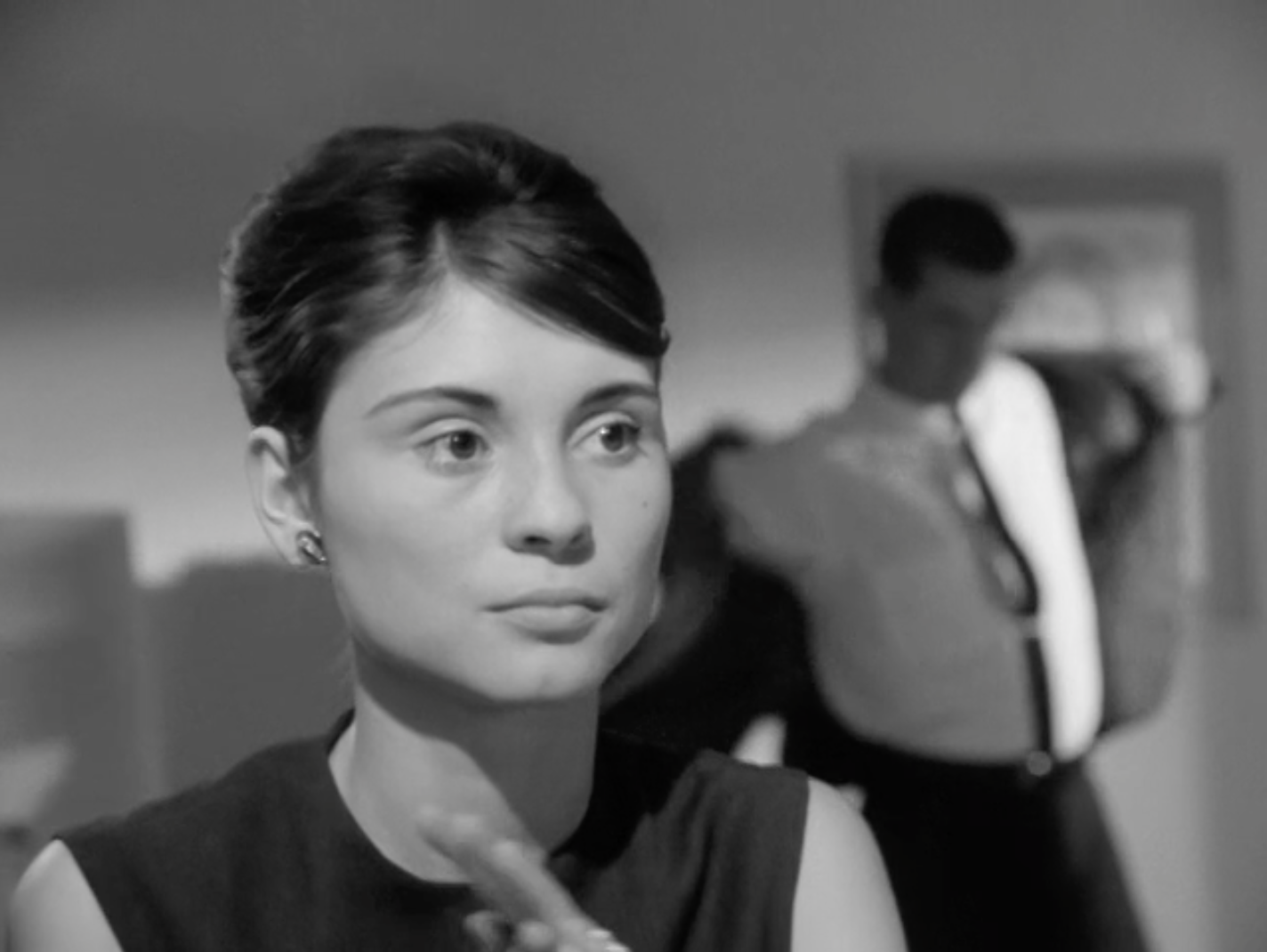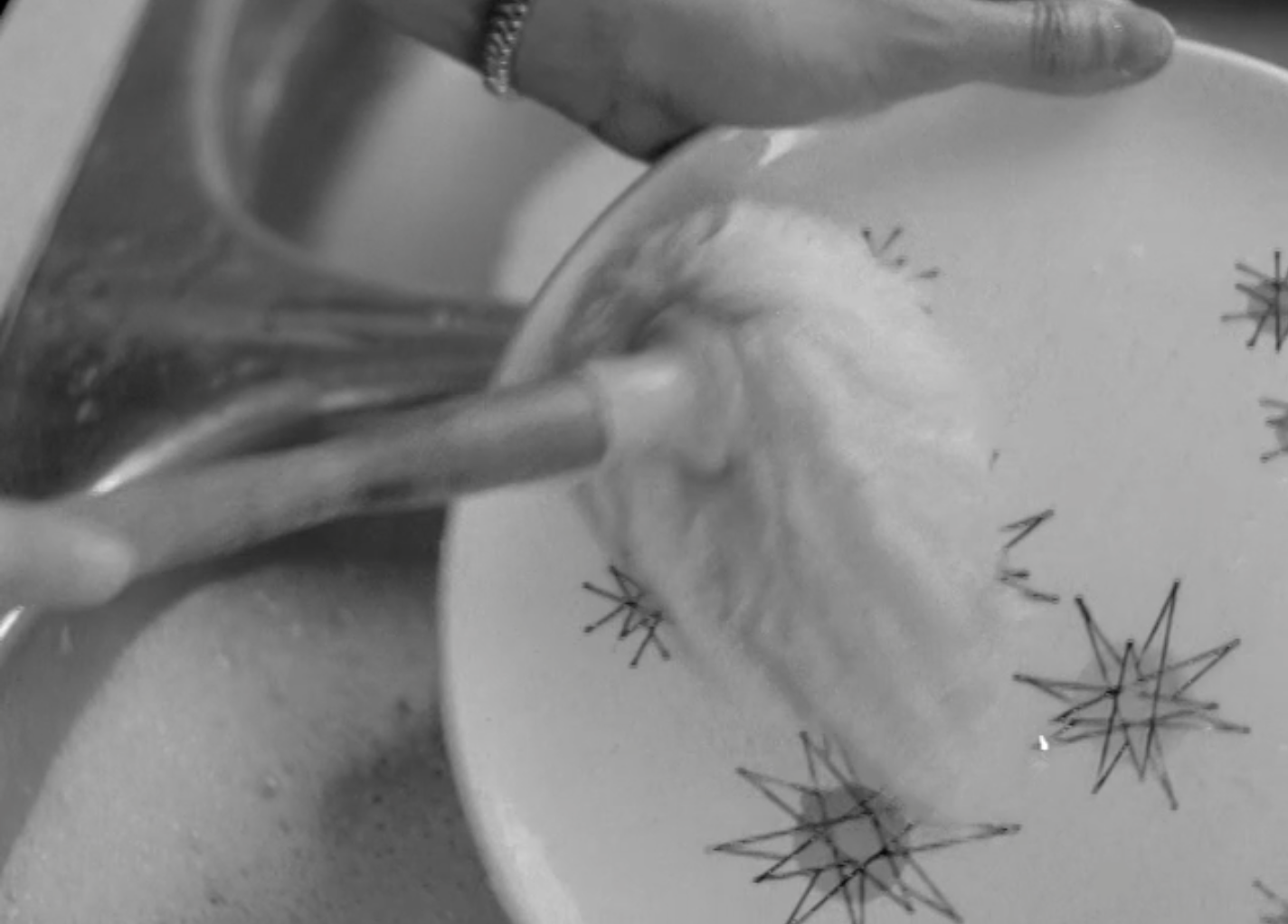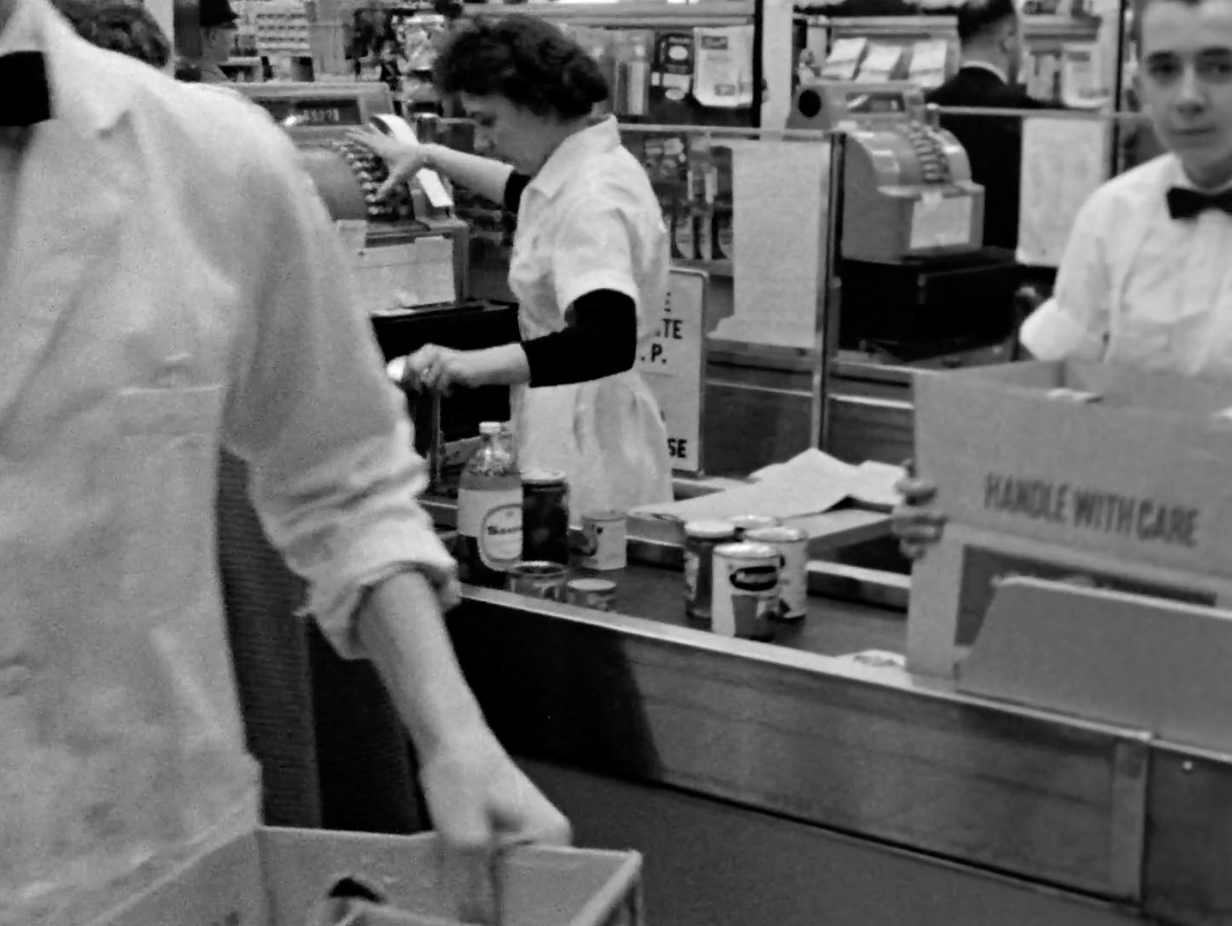Labyrinth (1967), dir. Roman Kroitor, Colin Low, et al.—prod. NFB
Labyrinth/Labyrinthe was an audacious multimedia and multi-sensory pavilion designed, executed, and hosted by the National Film Board of Canada for Montreal’s 1967 International and Universal Exposition, a.k.a. Expo 67. Its Brutalist form contained a number of multi-screen cinema chambers. One of them projected a series of moving images in a 5-screen cruciform arrangement. Though Labyrinth’s humanist perspective was also explicitly internationalist (hence the shots of the Sahara Desert that surround the first image), many of the featured images were of Montreal, where many of the filmmakers involved in this project lived and worked.
[snow; winter; commuters; gravedigger; traffic; public transportation; Dorchester Boulevard; Mary Queen of the World Cathedral; the Queen Elizabeth Hotel; camels; Sahara Desert]
Watch this film here.
And to learn much more about multi-screen experimentation at Expo 67, check out Reimagining Cinema: Film at Expo 67 (McGill-Queen’s University Press, 2014), edited by Janine Marchessault and Monika Kin Gagnon. Featuring essays by Seth Feldman, Gary Mediema, Aimée Mitchell, Johanne Sloan, Monika Kin Gagnon, Janine Marchessault, and Yours Truly.
aj
































